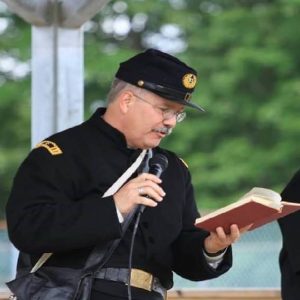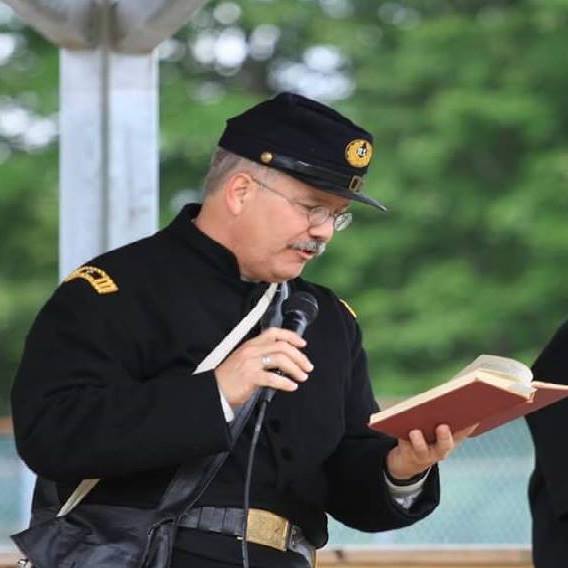
Every so often I will get asked the question, why do you re-enact? Sometimes I answer it is because I love to dress up or, I love to go camping in a tent. But the more serious reply to that question is I re-enact so people know the truth about what happened, why it happened, and hope that it never happens again. In light of the terrorism that took place recently in Charlottsville, Virginia, I thought I would clarify why I do what I do not only for those who ask, but for myself.
War is a horrible thing, and it should not be glamorized in any way. To quote George Hazzard from the miniseries North and South, “War is killing, killing your enemy.” The taking of a human life is not something that should be celebrated no matter the reason. War is sinful, and yes, sometimes inevitable, but it is not the norm nor should it be.
Make no mistake about it; the American Civil War was about slavery plain and straightforward. It was not a complicated series of events it was about white guys having the right to own black guys and if you doubt me just read the secession documents published by the various states in rebellion. Also to be clear, as justified as their position was, the abolitionist of the day believed that slavery was an abomination, but they also believed that the black man was not equal to the white man.
Some might say that the American Civil War was a shameful part of our history, and they would be correct in that assumption but just because something is a disgrace does not mean we should hide it or not try and find lessons in it to prevent us from making the same mistakes.
History, our shared history, is significant and those times that we are the most ashamed of help us not only to understand where we have come from but where we are going. We need to know the mind of those who came before us partly so we can understand and interpret the actions they took, but also so we can frame the future direction we take.
My usual portrayal at an event is as a chaplain with one of the regiments of the Union. I will freely admit that religion was, in no small way, a catalyst for the war but it was also a way to help the soldiers, far away from home, dealing with the horrors of war, to try and make some sense out of it. Just as the soldiers of today have to deal with the mental and emotional scars of war so did the troops in the 19th century.
In the end, I will say that I reenact in the hopes that we can avoid the events that brought our nation to that point of near destruction. I re-enact to inform and educate people about the real reasons why the war happened and that we should not glorify, even for a minute, those who caused the war and took up arms against their nation. I re-enact a war in the hopes that, in the future, we may never have to re-enact another one.

